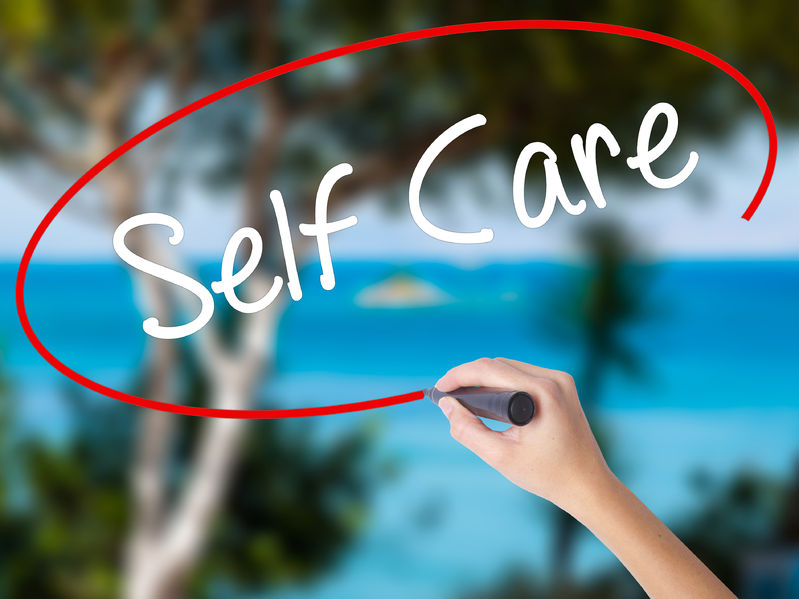Most of us would agree that self-care is important, and if we think about it long enough, most of us would also agree that it should be a priority. The key word there is “should”, but so often self-care is not. Self-care is any activity that we do deliberately in order to take care of our spiritual, mental, emotional, and physical health. As human beings, we have to be intentional about self-care because it is counterintuitive. All of us need energy to function and to function at our best, but at times we unintentionally sabotage our own health and well-being because we are wired to do so.
Often the urgent affairs take priority. We sacrifice what’s important for the urgent, hoping to give them our undivided attention later. These important areas of our lives could be our physical needs, such as a good night’s rest, a healthy breakfast in the morning, or exercise. Or these needs can be emotional, such as making time to call a loved one or spending time with our spouse. Or these needs can be mental or spiritual, such as meditating or spending time with God. At the end of the day, it all boils down to our choices. A good self-care plan involves activities that encompasses our entire being—the spiritual, emotional, mental and the physical.
Self-care begins with our time with God.
We need time alone to be with God. It just so happens that for most of us the best time is early in the mornings. It would help, then, that we retire early enough in the evenings, so our bodies will not fight against us to do what we should, such as praying, reading and meditating on the Word of God.
Self-care begins with God.
Self-care means getting the right amount of sleep.
Arising early in the mornings has its advantages. Getting up early can allow us time to prepare a healthy breakfast, which would help us to keep our blood sugar level stable throughout the day. Keeping our blood sugar level stable can also aid us in making better choices. Instead of a soda in the middle of the day for a ‘pick-me-up’ or buzz, we choose to enjoy a healthy balanced lunch because our sugar level has remained even-keeled. And after work, we might now even have enough energy left over for a workout.
Self-care involves getting the right amount of sleep.
In addition, going to bed early could create space in the morning for exercise. Rather than waking up and feeling tired, we might find ourselves refreshed and energized to do a morning workout. However, if we are feeling tired after sufficient hours of sleep, we should see a doctor and have our hormones check. Yes, the early bird does catch the worm, but in order to do so, we must retire early in the evenings in order to give our bodies the right amount of sleep it needs.
On the other hand, too much sleep is just as bad as too little sleep. Oversleeping has been linked to fatigue, obesity, diabetes and heart diseases. According to the article, The Risks of Sleeping ‘Too Much’, “Long sleepers’ were significantly more likely to have psychiatric diseases and a greater body mass index (BMI). A high BMI means higher risk of diabetes, heart disease and stroke. We have to strike the right balance when it comes to sleep.
The degree of self-care we give ourselves determines our choices.
When we are well rested, we are able to make better choices. But these choices are not limited to what we eat or put in our bodies but include every facet of our lives.
Most importantly, our ability to make the right decisions determines how well we manage the stress we encounter daily. The right amount of sleep means we are likely to respond rather than to react. To respond rather than to react is significant to our emotional and mental health, because it suggests we are aware of our emotions. We are more likely to think about what we are saying or doing.
Self-care is counterintuitive. It has to be learned and practiced until it becomes a habit. At the end of the day, we are better people and we are able to help others more effectively. By deliberately taking care of our spiritual, mental, emotional and physical needs, we are able to hear God more readily.
Remember:
1. Self-care is intentionally doing any activity to take care of your spiritual, mental and physical health.
2. A good self-care plan begins the day with God. In other words, it is putting first things first.
3. When stress hits, self-care is counterintuitive, but this is when it really counts. Do it anyway. Choose to exercise rather than eat the pizza and/or beer.
4. Practice makes perfect. Self-care is simple, but it is not easy, because we are wired for the negative. We have to learn to be positive and do what is right.
5. Self-care means caring for yourself in such a way to be able to help others more effectively. As is often cautioned during during a flight, put the oxygen mask on first if ever the plane encounters a problem before helping young ones, in particular.
To learn more about how you can develop a self-care plan that is designed for your spiritual, mental, emotional and physical needs, order your copy of The Ten Guiding Lights to Health and Wholeness.












